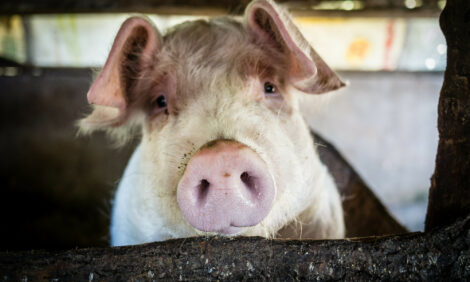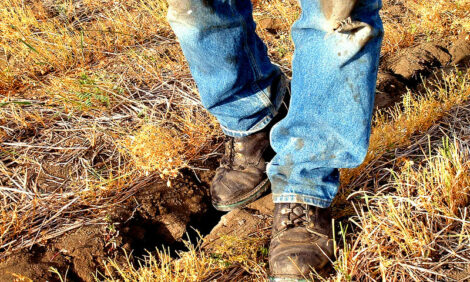



PCV2 Lowers Vaccine Efficacy
In 2006, Iowa State University scientists Dr T Opriessnig and Dr. PG Halbur demonstrated experimentally that subclinical PCV2-infection is associated with decreased vaccine efficacy, write JoAnn Alumbaugh at Farms.Com.Recent Studies
The results of a recent study at Iowa State University. In this study, 2-week-old pigs were randomly assigned to one of seven groups of 9-10 pigs each.At six weeks of age, a portion of the pigs were inoculated intra-nasally with PCV2 ISU-40895. At eight weeks of age, some pigs were vaccinated with a modified live PRRS vaccine. At 12 weeks of age, pigs in three groups were challenged with a strain of PRRS (PRRSV SDSU73). None of the PCV-2 infected pigs showed clinical signs because of the PCV-2, therefore it can be concluded that the infection remained sub-clinical. A negative control group was included in the study.
The researchers report that all pigs were necropsied 14 days post challenge with the PRRS virus. The PCV2-infected, PRRSV-vaccinated and PRRSV-challenged pigs had significantly more severe lung lesions compared to the PRRSV-vaccinated and PRRSV-challenged pigs that were not exposed to PCV2 prior to PRRSV vaccination.
Non-vaccinated PRRSV-infected pigs had significantly higher incidence of PRRSV-antigen in their lungs compared to all other groups, except the group infected with PCV2 prior to PRRSV vaccination and challenge.
Drs. Opriessnig and Halbur state the non-vaccinated PRRSV-challenged group and the group challenged with PCV2 prior to PRRSV vaccination and challenge had significantly lower average daily weight gain compared to the PRRS vaccinated and PRRS challenged group that was not infected with PCV-2.
Adverse
They maintain that the adverse effect of PCV2 infection on the development of protective immunity against PRRSV and other respiratory pathogens may be an important, and perhaps an underappreciated factor in controlling porcine respiratory disease complex (PRDC) and other diseases in pigs.
They said that well-designed field trials were now required to fully understand the pathogenesis of PCVAD, and the effects of PCV2 vaccine in controlling clinical and subclinical PCV2 infection.
To read the full report click here.
References:
1. Opriessnig, T, Halbur, PG, 2007. Effect of Subclinical PCV2 Infection on Growth in Young Pigs. Leman Conference, Sept. 2007
2. Opriessnig, T, McKeown, NE, Harmon, KL, Meng XJ, Halbur PG. 2006a. Porcine circovirus type 2 infection decreases the efficacy of a modified live porcine reproductive and respiratory syndrome virus vaccine. Clin Vaccine Immunol. 13:923-929.
3. Kim, J. Chae, C. 2005. Necrotising lymphadenitis associated with porcine circovirus type 2 in pigs. Vet Rec. 156:177-178.
4. Opriessnig, T, Janke, BH, Halbur, PG, 2006b. Cardiovascular lesions in pigs naturally or experimentally infected with porcine circovirus type 2. 134:105-110.






